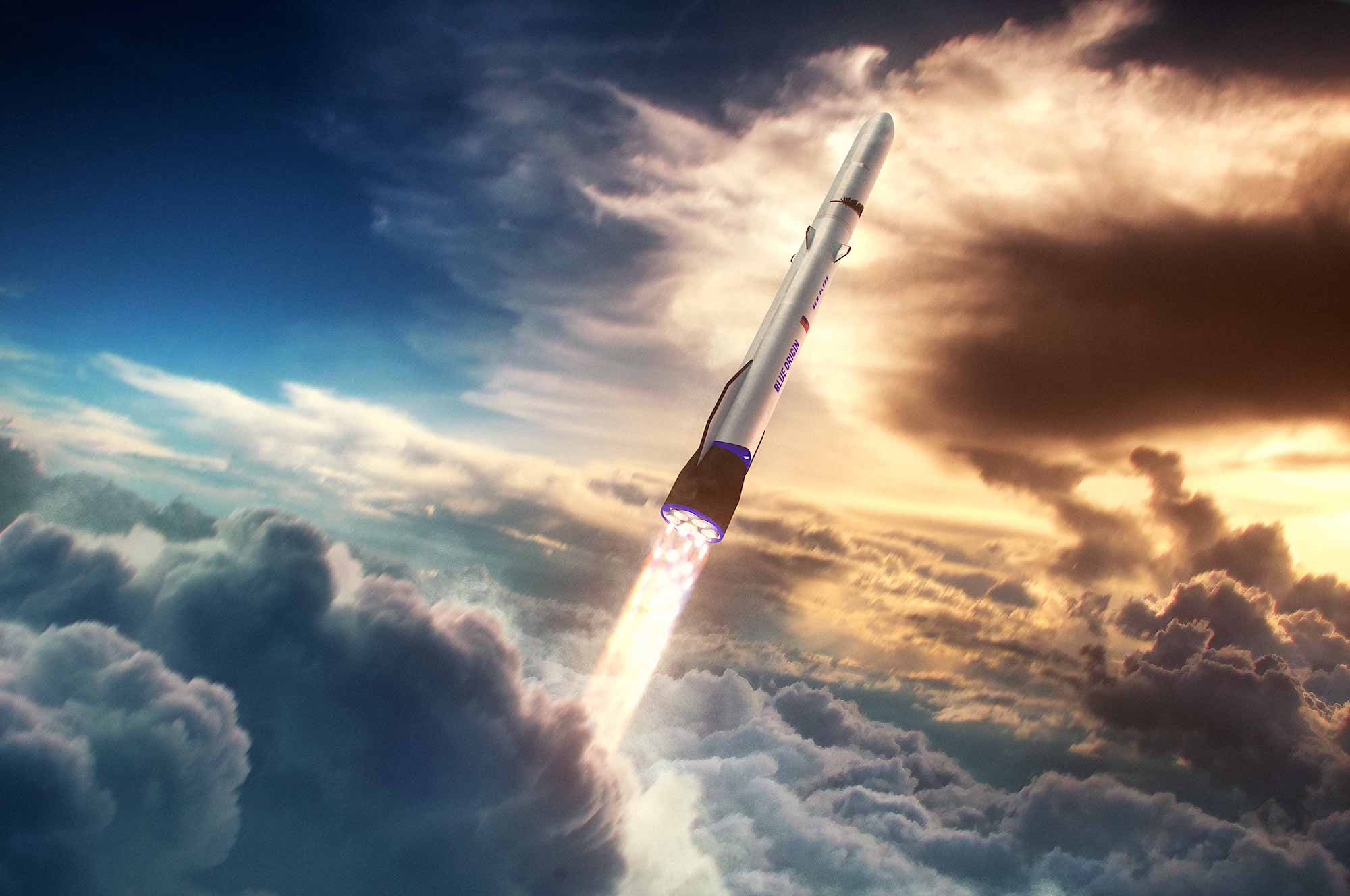WASHINGTON — NASA has added New Glenn, the large launch vehicle under development by Blue Origin, to the list of vehicles eligible to compete for future agency missions.
NASA announced Dec. 16 it awarded a launch services contract to Blue Origin, adding New Glenn to its NASA Launch Services (NLS) 2 contract vehicle as part of an annual “on-ramp” process. NASA uses the NLS 2 contract to purchase launches for spacecraft missions.
Being added to NLS 2 does not guarantee a vehicle any contracts, but instead makes it eligible to compete for missions. Vehicles on NLS 2 include the Antares, Pegasus and Taurus rockets from Northrop Grumman, SpaceX’s Falcon 9 and Falcon Heavy, and United Launch Alliance’s Atlas 5 and Delta 4. Some missions, such as high-value payloads with low risk tolerance, are restricted to launchers with a proven flight record.
Blue Origin nonetheless welcomed the news. “We are proud to be in NASA’s launch services catalog and look forward to providing reliable launches for future NASA missions aboard New Glenn for years to come,” Jarrett Jones, senior vice president for New Glenn, said in a company statement.
Since announcing New Glenn in 2016, Blue Origin has secured several commercial customers, including Eutelsat, Mu Space, OneWeb, Sky Perfect JSAT and Telesat.
New Glenn was one of the competitors for the Pentagon’s National Security Space Launch (NSSL) Phase 2 contract. However, it lost to SpaceX’s Falcon vehicles and United Launch Alliance’s new Vulcan rocket in August. Vulcan uses BE-4 engines provided by Blue Origin, which also uses those engines in the first stage of New Glenn.
“We are proceeding with New Glenn development to fulfill our current commercial contracts, pursue a large and growing commercial market, and enter into new civil space launch contracts,” Bob Smith, chief executive of Blue Origin, said in an August statement after losing the NSSL Phase 2 competition. He said that the company made “an incredibly compelling offer” to the U.S. Space Force in the competition, citing among other factors an “unprecedented private investment” of more than $2.5 billion into the vehicle.
Blue Origin has said little else recently about the status of New Glenn’s development. One of the few visible signs of progress has been continuing construction of the launch pad for the vehicle at Cape Canaveral Space Force Station’s Launch Complex 36. The company also built a factory just outside the gates of the Kennedy Space Center to manufacture the New Glenn, and in February opened a factory in Huntsville, Alabama, to produce BE-4 and BE-3U engines.
The company originally targeted a 2020 debut for the rocket, but by early 2019 that had slipped to 2021. A fact sheet distributed at the opening of its Huntsville engine factory stated that the vehicle’s first flight was scheduled for late 2021.
Blue Origin spokesperson Sara Blask said Dec. 17 that the company didn’t have any new information to share on the progress of New Glenn or an estimated date of its first launch.
